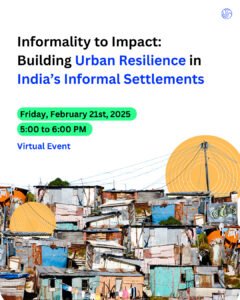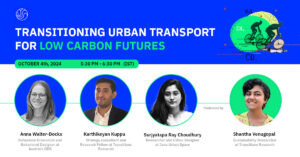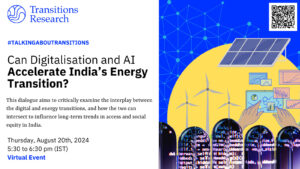Cities must be at the forefront of climate action. As contributors to 70% of global greenhouse emissions and hotspots of climate impacts, cities have to both reduce emissions and also build resilience, especially of urban poor, to emerging climate risks. India’s commitment to net zero by 2070 has spurred urban action, as more than 60 cities have made net zero pledges. India’s rapidly growing, mid-sized cities, which are expected to increase in number from 120 to 164 this decade, will need to pioneer these transitions.
The concept of Net Zero is rooted in the physical sciences. Dominant approaches tend to focus on technology solutions, glossing over the societal and behavioural changes that need to accompany shifts in technological systems. Transition pathways also need to be inclusive: addressing the needs of urban poor by identifying solutions with development co-benefits.
We were in conversation with Dr. Shiraz Wajih, the President of Gorakhpur Environmental Action Group, Kristina Londakova, Principal Advisor and Sub-Saharan Africa Lead at The Behavioural Insights Team, and Ashali Bhandari, who leads the People’s Urban Living Lab and Future Cities program at Transitions Research, to discuss how to build a net zero society in Indian cities. The dialogue explored the social transformations that must accompany low carbon transitions to ensure an equitable net zero, urban future.




